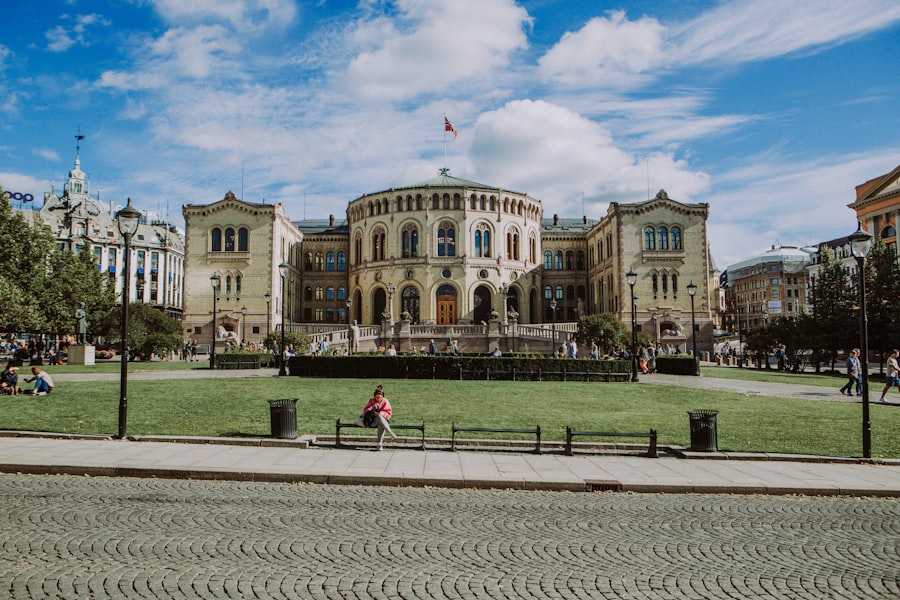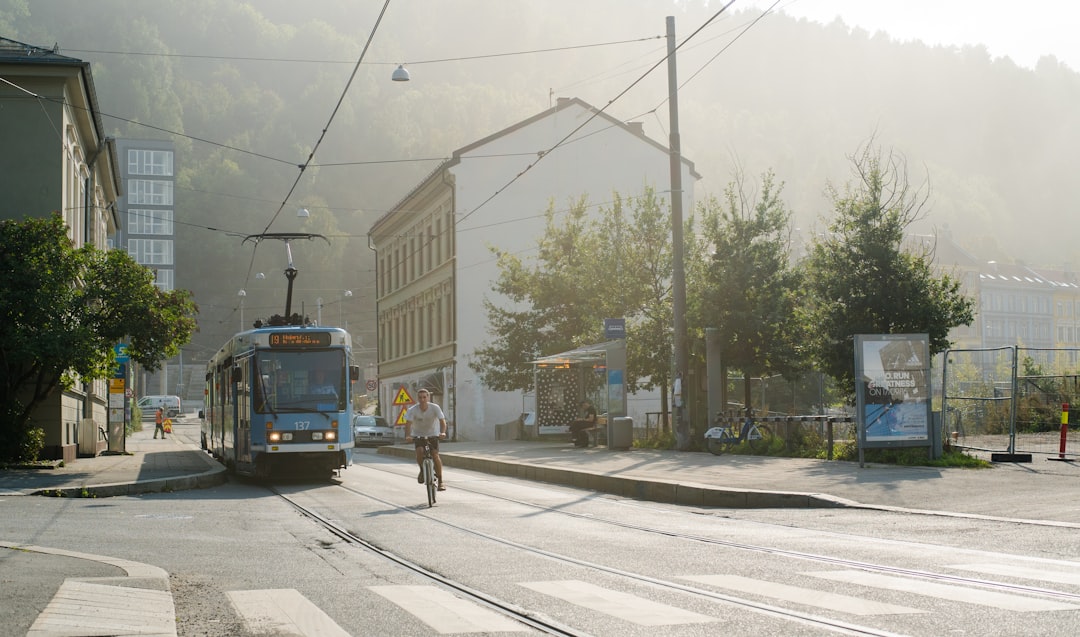When considering a move to Norway, one of the first steps is to thoroughly research the cost of living. Norway is known for its high standard of living, but this often comes with a price tag that can be daunting for newcomers. Major cities like Oslo, Bergen, and Stavanger tend to have higher living costs compared to rural areas.
Housing, food, transportation, and leisure activities are all factors that contribute to the overall expense of living in Norway. For instance, rent in Oslo can be particularly steep, with prices varying significantly depending on the neighbourhood. It is advisable to consult various online resources and local forums to gain insights into current market trends and average costs.
In addition to housing, everyday expenses such as groceries and dining out can also be higher than in many other countries. However, it is worth noting that salaries in Norway are generally commensurate with these costs, often allowing for a comfortable lifestyle. Understanding the nuances of the cost of living will help potential expats budget effectively and prepare for their new life in Norway.
It is also beneficial to consider the potential for savings and investments, as the Norwegian economy is stable and offers various opportunities for financial growth. Take the first step. Book a consultation with the Norway Relocation Group for your move to Norway.
Summary
- Researching the Cost of Living in Norway:
- Use online cost of living calculators to estimate expenses
- Consider factors such as housing, groceries, and transportation
- Take into account the higher cost of living compared to other countries
- Understanding the Immigration Process and Visa Requirements:
- Research the different types of visas available
- Understand the application process and required documentation
- Consider seeking professional advice for complex cases
- Finding the Right Neighbourhood and Accommodation:
- Research different neighbourhoods to find the right fit
- Consider factors such as proximity to work, schools, and amenities
- Explore various accommodation options, including renting and buying
- Securing Employment or Understanding the Job Market:
- Research the job market and understand the demand for your skills
- Network with professionals in your industry
- Consider language requirements for employment
- Learning the Norwegian Language and Culture:
- Enrol in language courses to learn Norwegian
- Immerse yourself in the local culture through events and activities
- Understand cultural norms and etiquette to integrate better
- Organising Healthcare and Insurance:
- Research the Norwegian healthcare system and insurance options
- Register with a local GP and understand emergency services
- Consider private health insurance for additional coverage
- Sorting Out Finances and Banking:
- Open a bank account in Norway and understand the banking system
- Research tax obligations and financial planning
- Consider currency exchange and international money transfers
- Transport and Getting Around in Norway:
- Research public transport options in your area
- Consider owning a car or using alternative modes of transportation
- Understand the cost and availability of parking
- Preparing for the Climate and Weather:
- Research the climate in Norway and prepare for seasonal changes
- Invest in appropriate clothing and gear for outdoor activities
- Consider the impact of weather on daily life and activities
- Arranging Education for Children:
- Research the Norwegian education system and available schools
- Understand the application process and enrolment requirements
- Consider language support for non-Norwegian speaking children
- Connecting with the Expat Community and Local Resources:
- Join expat groups and online forums to connect with others
- Research local resources for expats, such as language classes and social events
- Seek support and advice from the expat community for a smoother transition
Understanding the Immigration Process and Visa Requirements
Navigating the immigration process can be one of the more complex aspects of relocating to Norway. The requirements for obtaining a visa or residence permit depend largely on your nationality, purpose of stay, and duration of your intended residency. Citizens from EU/EEA countries enjoy relatively straightforward access, often requiring only a registration certificate if they plan to stay longer than three months.
Conversely, non-EU/EEA nationals may face more stringent requirements, including securing a job offer or enrolling in an educational institution before applying for a visa. It is crucial to familiarise yourself with the specific documentation needed for your application, which may include proof of employment, financial stability, and accommodation arrangements. The Norwegian Directorate of Immigration (UDI) provides comprehensive guidelines and resources that can assist you in understanding the process.
Engaging with local expat communities can also provide valuable insights and support as you navigate this often daunting bureaucratic landscape.
Finding the Right Neighbourhood and Accommodation

Choosing the right neighbourhood is essential for ensuring a smooth transition to life in Norway. Each area has its unique character, amenities, and community vibe. For instance, Oslo boasts a variety of districts ranging from the bustling city centre to quieter suburbs like Bærum or Nordstrand.
Factors such as proximity to work, schools, public transport, and recreational facilities should all be taken into account when selecting a place to live. Once you have identified potential neighbourhoods, the next step is to secure accommodation. The rental market in Norway can be competitive, particularly in urban areas.
Websites such as Finn.no and Hybel.no are popular platforms for finding rental properties. It is advisable to act quickly when you find a suitable option, as properties can be snapped up rapidly. Additionally, consider reaching out to local real estate agents who can provide assistance and guidance tailored to your needs.
Securing Employment or Understanding the Job Market
Understanding the job market in Norway is crucial for those planning to work while living there. The country has a robust economy with low unemployment rates, but certain sectors are more prominent than others. Industries such as oil and gas, maritime, technology, and healthcare are significant contributors to the Norwegian economy.
Researching these sectors can help you identify potential job opportunities that align with your skills and experience. Networking plays a vital role in securing employment in Norway. Many jobs are filled through personal connections rather than traditional job postings.
Engaging with local professional groups or attending industry events can help you build relationships within your field. Additionally, platforms like LinkedIn are widely used in Norway for job searching and networking. It is also beneficial to tailor your CV and cover letter to meet Norwegian standards, which may differ from those in your home country.
Learning the Norwegian Language and Culture
One of the most rewarding aspects of moving to Norway is immersing yourself in its rich culture and language. While many Norwegians speak English fluently, learning Norwegian can significantly enhance your experience and integration into society. It opens doors to deeper connections with locals and provides insight into cultural nuances that may otherwise go unnoticed.
The NLS Norwegian Language School in Oslo offers a range of courses tailored for different proficiency levels, making it an excellent choice for newcomers eager to learn the language. These courses not only focus on language skills but also incorporate cultural elements that enrich your understanding of Norwegian society. Engaging with local customs, traditions, and social norms will further enhance your ability to navigate daily life in Norway.
Organising Healthcare and Insurance

Healthcare is another critical aspect to consider when moving to Norway. The country boasts a high-quality public healthcare system funded by taxes, which provides residents with access to essential medical services. However, it is important to register with the National Registry upon arrival to gain access to these services.
This registration process typically requires proof of residence and identification. In addition to public healthcare, many expats opt for private health insurance to cover additional services or quicker access to specialists. Researching various insurance providers will help you find a plan that suits your needs and budget.
Understanding how the healthcare system operates will ensure that you are well-prepared for any medical needs that may arise during your stay in Norway.
Sorting Out Finances and Banking
Establishing a solid financial foundation is essential when relocating to Norway. Opening a local bank account will facilitate everyday transactions and make managing your finances more straightforward. Most banks require proof of identity, residency, and employment status when setting up an account.
It is advisable to compare different banks’ offerings regarding fees, services, and accessibility before making a decision. Additionally, understanding the tax system in Norway is crucial for financial planning. The country has a progressive tax system where higher earners pay a larger percentage of their income in taxes.
Familiarising yourself with tax obligations will help you avoid any surprises come tax season. Consulting with a financial advisor who understands both Norwegian regulations and your personal circumstances can provide valuable guidance as you navigate this aspect of your new life.
Transport and Getting Around in Norway
Norway’s transport infrastructure is well-developed, making it relatively easy to get around whether you are in urban areas or exploring the stunning countryside. Public transport options include buses, trams, trains, and ferries that connect major cities and regions efficiently. In Oslo, for example, the public transport system is extensive and reliable, allowing residents to commute without needing a car.
For those who prefer driving, it is important to familiarise yourself with local traffic laws and regulations. Obtaining a Norwegian driving licence may be necessary depending on how long you plan to stay in the country. Additionally, consider exploring alternative modes of transport such as cycling or walking, especially in cities where these options are increasingly popular due to their environmental benefits.
Preparing for the Climate and Weather
Norway’s climate can be quite varied depending on the region and time of year. Winters can be long and harsh, particularly in northern areas where temperatures can plummet significantly. Conversely, summers are generally mild with longer daylight hours that encourage outdoor activities.
Preparing for these climatic conditions is essential for ensuring comfort throughout the year. Investing in appropriate clothing and gear is crucial for adapting to Norway’s weather patterns. Layering is key during colder months, while breathable fabrics are ideal for summer activities.
Additionally, understanding seasonal changes will help you plan your lifestyle accordingly—whether it’s embracing winter sports or enjoying summer hikes amidst breathtaking landscapes.
Arranging Education for Children
For families relocating to Norway, arranging education for children is an important consideration. The Norwegian education system offers free public schooling from primary through secondary levels; however, there are also private schools available that may follow different curricula or pedagogical approaches. Researching local schools in your chosen neighbourhood will help you determine which options best suit your children’s needs.
It is advisable to contact schools directly regarding enrolment procedures and any necessary documentation required for international students. Many schools offer support services for non-Norwegian speakers, helping children acclimatise both academically and socially within their new environment.
Connecting with the Expat Community and Local Resources
Finally, connecting with the expat community can provide invaluable support during your transition to life in Norway. Many cities have established networks or organisations dedicated to helping newcomers settle in and feel at home. These communities often host events where you can meet fellow expats and locals alike while sharing experiences and advice.
Local resources such as community centres or cultural organisations can also offer workshops or activities that promote integration into Norwegian society. Engaging with these resources not only helps build a support network but also enriches your understanding of Norwegian culture—making your new life in Norway all the more fulfilling. In conclusion, moving to Norway presents both challenges and opportunities that require careful consideration across various aspects of life—from understanding the cost of living to learning the language at institutions like NLS Norwegian Language School in Oslo.
By taking proactive steps in each area outlined above, newcomers can pave the way for a successful transition into their new home while embracing all that this beautiful country has to offer.
Learn more about the Norwegian classes at the NLS Norwegian Language School in Oslo

